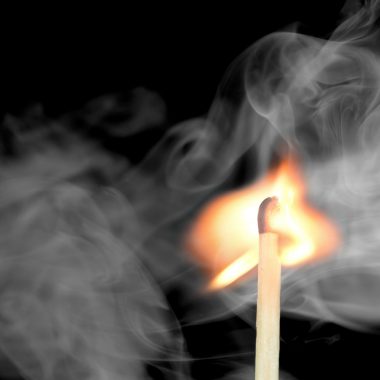Exclusive Four in 10 GPs have taken or expect to take time off because of burnout as a result of increasing workloads and intense scrutiny, a Pulse survey has revealed.
The Pulse survey of 602 GPs found that 12% had taken time off in the past 12 months, while 29% thought they would probably need to in the next 12 months.
It is also revealed that 45% said that staff members in their practice had taken time off in the past 12 months.
Respondents said that heavy workloads and intense scrutiny from regulators and the media were to blame for the onset of burnout.
Commenting on the results, the GPC said workload was leading to a self-perpetuating cycle, in which GPs suffering from burnout are forced to take time off, passing the burden on to other GPs.
Following a Pulse campaign, NHS England agreed in May to fund ‘high quality’ occupational services for all GPs in England, having initially only agreed to fund services for GPs ‘where there are concerns about performance’.
However, it has not released details about the scheme, which are expected shortly.
A similar survey last year revealed that 9% of GPs had taken time off as a result of stress.
Related stories
Burnout campaign victory is welcome, but there is more to do
Pulse campaign wins occupational support pledge for every GP
Hunt to tackle GP burnout by reviewing 10-minute appointments
These figures mirror recent findings from the BMA tracker survey, which shows that GP morale is declining even further than last year, with three-quarters of GPs reporting unmanageable or unsustainable workloads.
Dr Raj Thakkar, a GP and clinical commissioning director at NHS Chiltern CCG, said practice colleagues had to take time off because of stress.
He said: ‘Medicine is highly oppressive, with CQC, scrutiny in the newspapers, unrealistic expectations and other agencies putting hard-working doctors under the microscope. All this is on top of working a lot more for a lot less. Is there any wonder there is a recruitment crisis?’
Dr Zishan Syed, a locum GP, said: ‘GPs are subject to terrible pressure and expectations on a workforce that is frankly exhausted.
‘A huge source of stress for doctors is fear of litigation and investigations from their local authorities or other regulatory authorities such as the GMC, sometimes simultaneously.
‘It seems sometimes that such investigations have already established a verdict of the doctor being guilty before hearing his/her perspective. Indemnity organisations continue to ask for huge sums of money, but some doctors have been dropped at the most critical points of their cases by their indemnity organisations, to whom they have been faithfully paying indemnity fees.’
GPC chair Dr Chaand Nagpaul said: ‘These are extremely worrying figures that mirror the base reality of GPs up and down the UK. Even more concerning is the ripple effect of those doctors who take time off due to sickness on an already overstretched GP workforce, resulting in greater stress on those GPs remaining. We need to ensure that we take measures right from government through to local commissioning policies that manage the pressures on GP workload.’
Pulse October survey
Take our July 2025 survey to potentially win £1.000 worth of tokens












